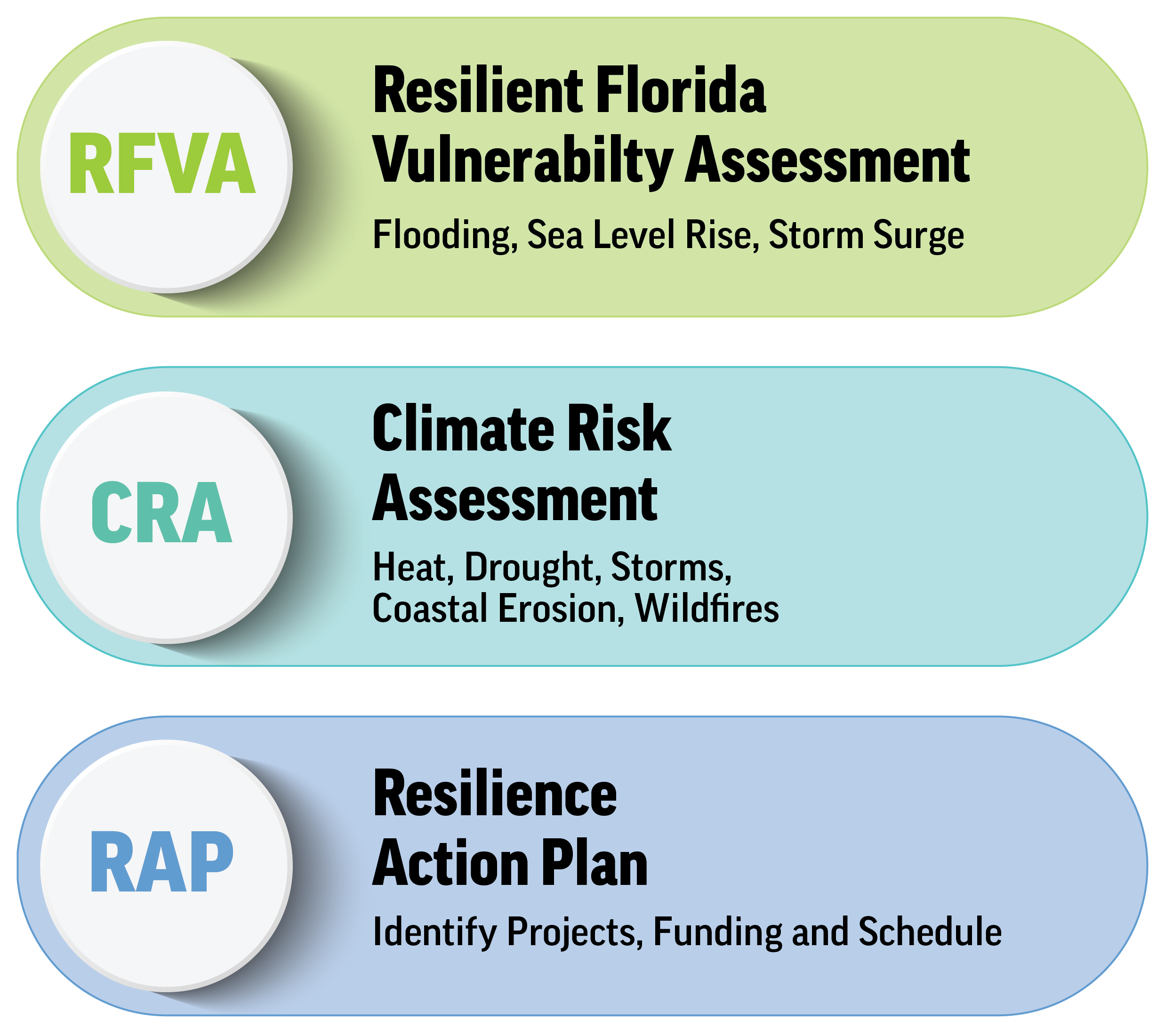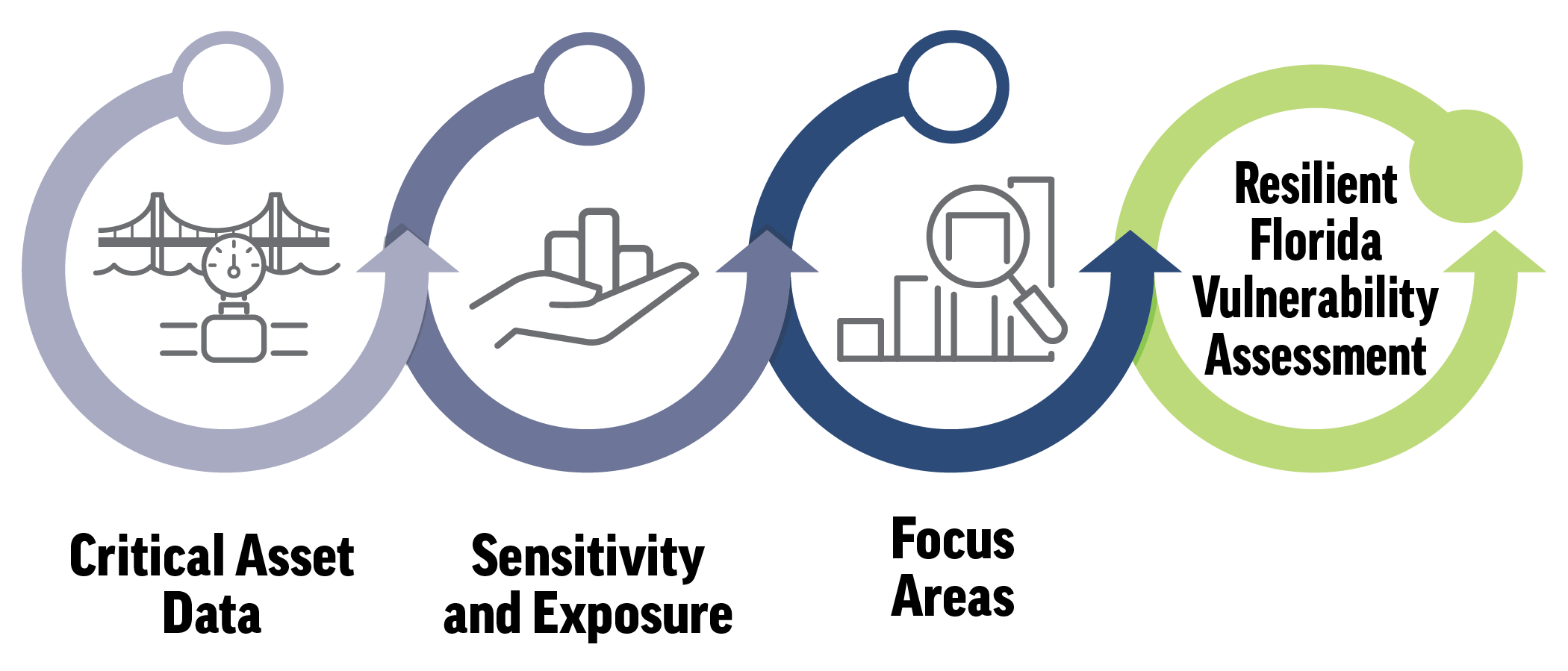The PBC
Climate Risk Assessment and Action Plan is a project designed to address environmental hazards and climate risks exacerbated by climate change and sea level rise. Funded by the Florida Department of Commerce's
Community Development Block Grant Mitigation (CDBG-MIT) Program on behalf of the U.S. Department of Housing and Urban Development and the Florida Department of Environmental Protection (FDEP) through the
Resilient Florida Grant program, this initiative will provide a comprehensive roadmap for PBC to enhance its resilience.
Collaboration is central to this project, involving a diverse range of stakeholders, from elected officials to environmental groups, ensuring both technical expertise and community insights are considered. Furthermore, the project prioritizes frontline communities through development and execution.
 Ultimately, the
Climate Risk Assessment and Action Plan aims to create a cohesive and collaborative strategy for a resilient region, addressing various environmental hazards and complying with state legislation requirements. The resulting action plan will guide County actions and partnerships with the broader community. Additionally, it will allow PBC to become eligible for future State and Federal grant funding.
Ultimately, the
Climate Risk Assessment and Action Plan aims to create a cohesive and collaborative strategy for a resilient region, addressing various environmental hazards and complying with state legislation requirements. The resulting action plan will guide County actions and partnerships with the broader community. Additionally, it will allow PBC to become eligible for future State and Federal grant funding.
Climate Risk Assessment:
A risk assessment is a systematic procedure aimed at identifying a community's susceptibility to adverse impacts from climate threats. PBC is conducting a climate risk assessment to understand these impacts better and prepare for the future. The climate risk assessment will cover PBC's unincorporated area and western municipalities.

Palm Beach County's Climate Risk Assessment will assess the impacts of climate threats and the potential magnitude, severity, and extent of rainfall flooding, tidal flooding, and current and future storm surge flooding in combination with various sea level rise projection scenarios. This science-driven data will be derived from sources such as the National Oceanic Atmospheric Administration (NOAA). Specifically, it will analyze the effects on County-owned or maintained critical assets.

To fully identify climate risks and vulnerabilities for the County's unincorporated areas and western municipalities for future disaster mitigation planning efforts are also underway. The results will improve state, regional, and local plans to address extreme heat, drought, severe storms, wildfires, and coastal erosion. After determining the vulnerability of the community assets, the next phase involves assessing risk. Risk involves evaluating the likelihood of an event occurring and the level of vulnerability of an asset to a specific threat, coupled with the potential consequences of that hazard.
Resilience Action Plan:
The climate risk assessment's findings will inform the County's
Resilience Action Plan, which will offer strategies for County-wide resilience, including climate adaptation options to prepare for the risks identified. The action plan will prioritize projects based on the climate risk assessment results and provide realistic implementation plans benefitting PBC. Hazard mitigation efforts, emergency preparedness, land use planning, code & policy development, infrastructure investment, and public health policies & programs will be considered.

Figure 1. Climate Risk Assessment and Action
Plan Steps
Recordings of Past Community Workshops
Pahokee PBC Climate Risk Assessment Workshop, March 13, 2024
Unincorporated PBC Climate Risk Assessment Workshop, February 28, 2024
Belle Glade & South Bay Climate Risk Assessment Workshop, February 21, 2024
Pahokee Climate Risk Assessment Workshop, Aug 31, 2023
Unincorporated PBC Climate Risk Assessment Workshop, Aug 17, 2023
Belle Glade & South Bay Climate Risk Assessment Workshop, July 11, 2023